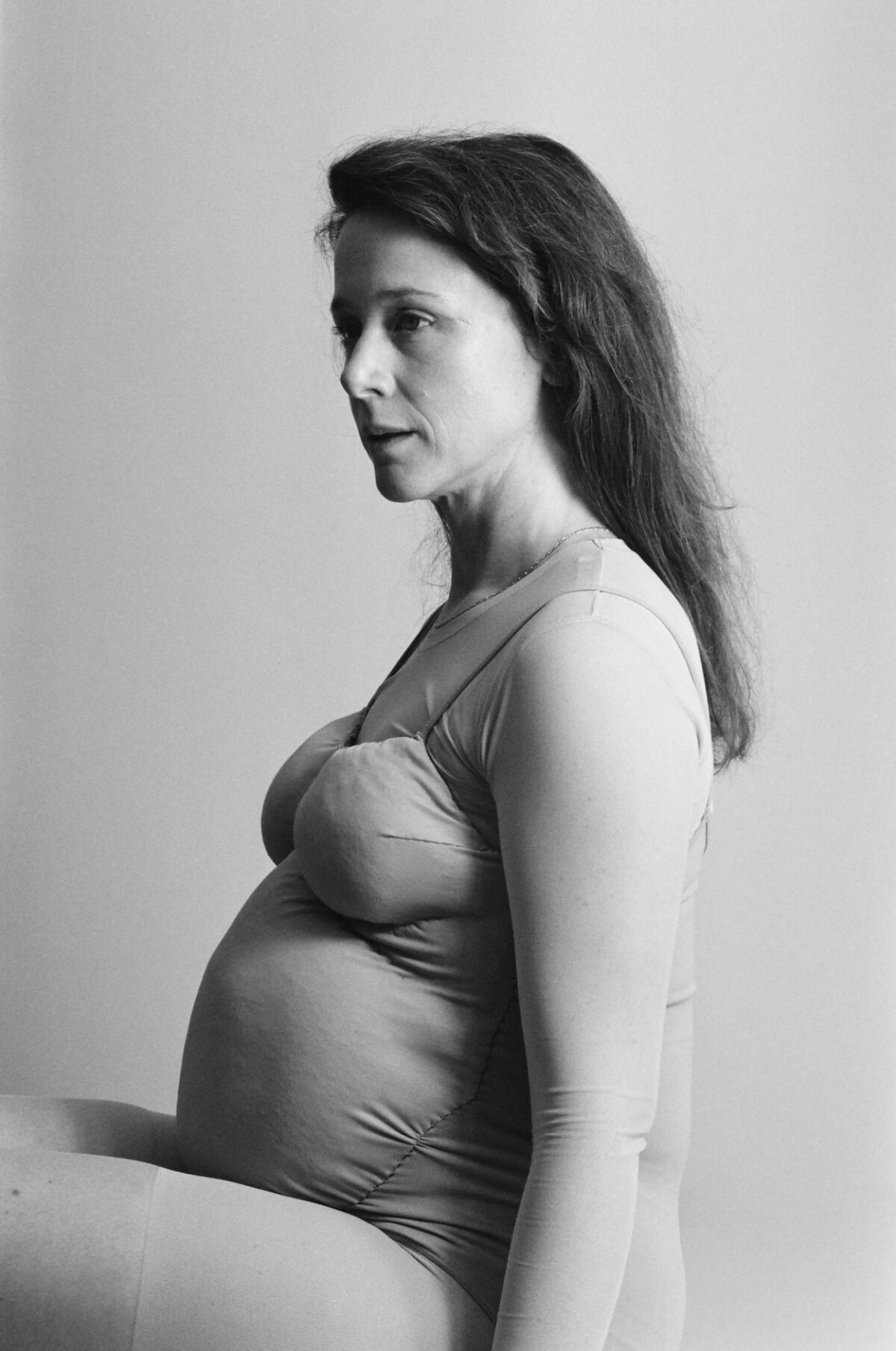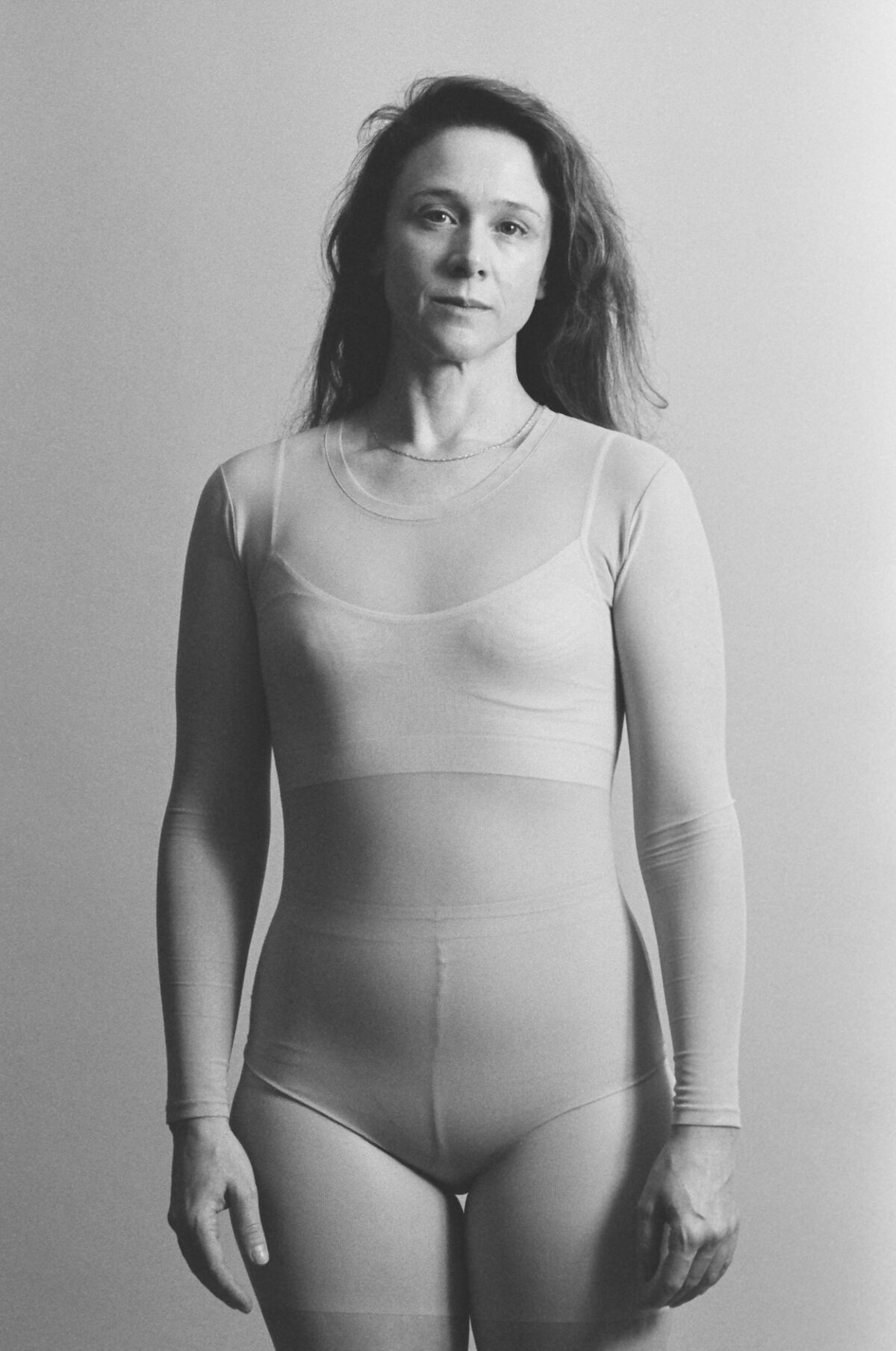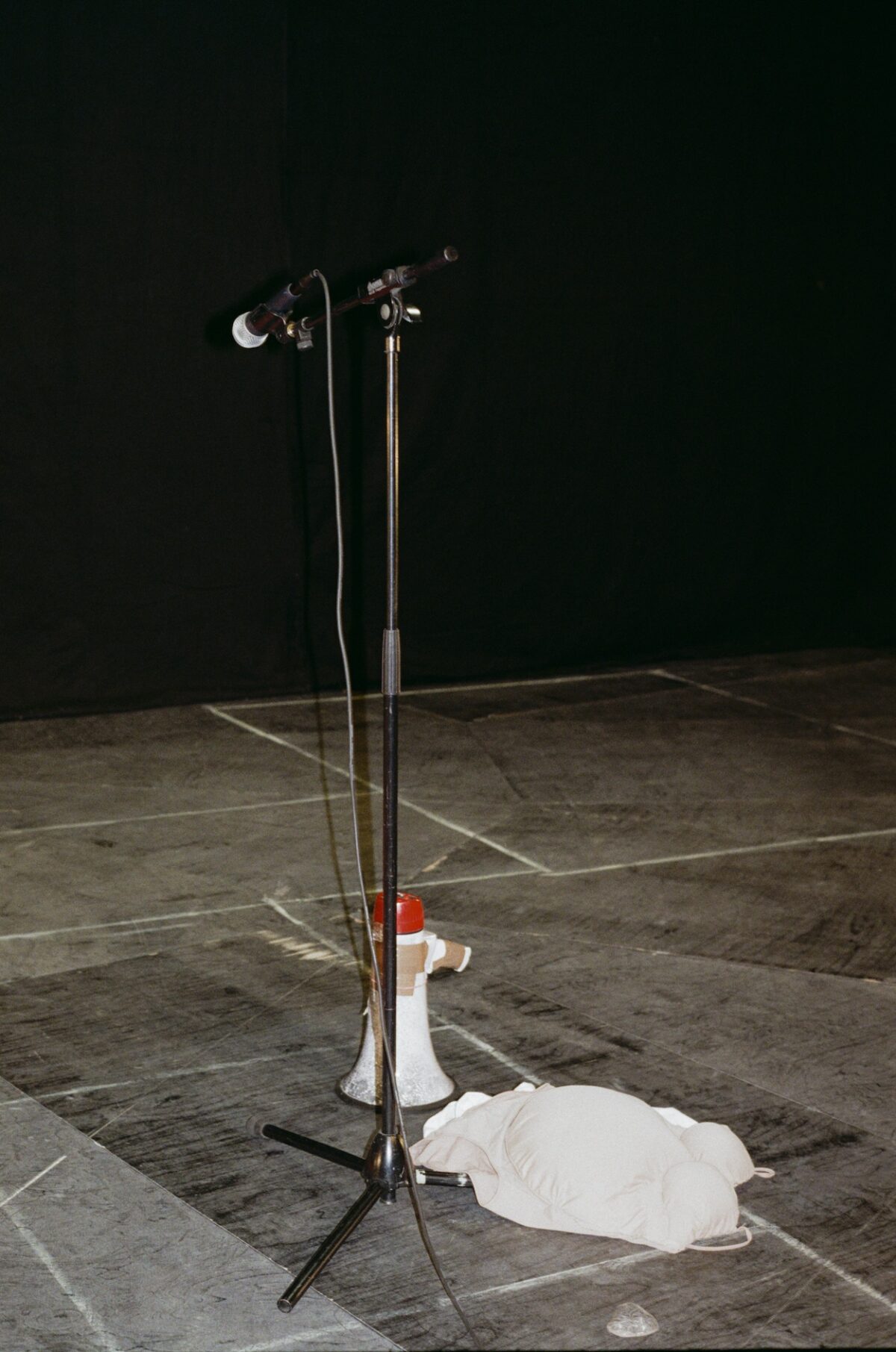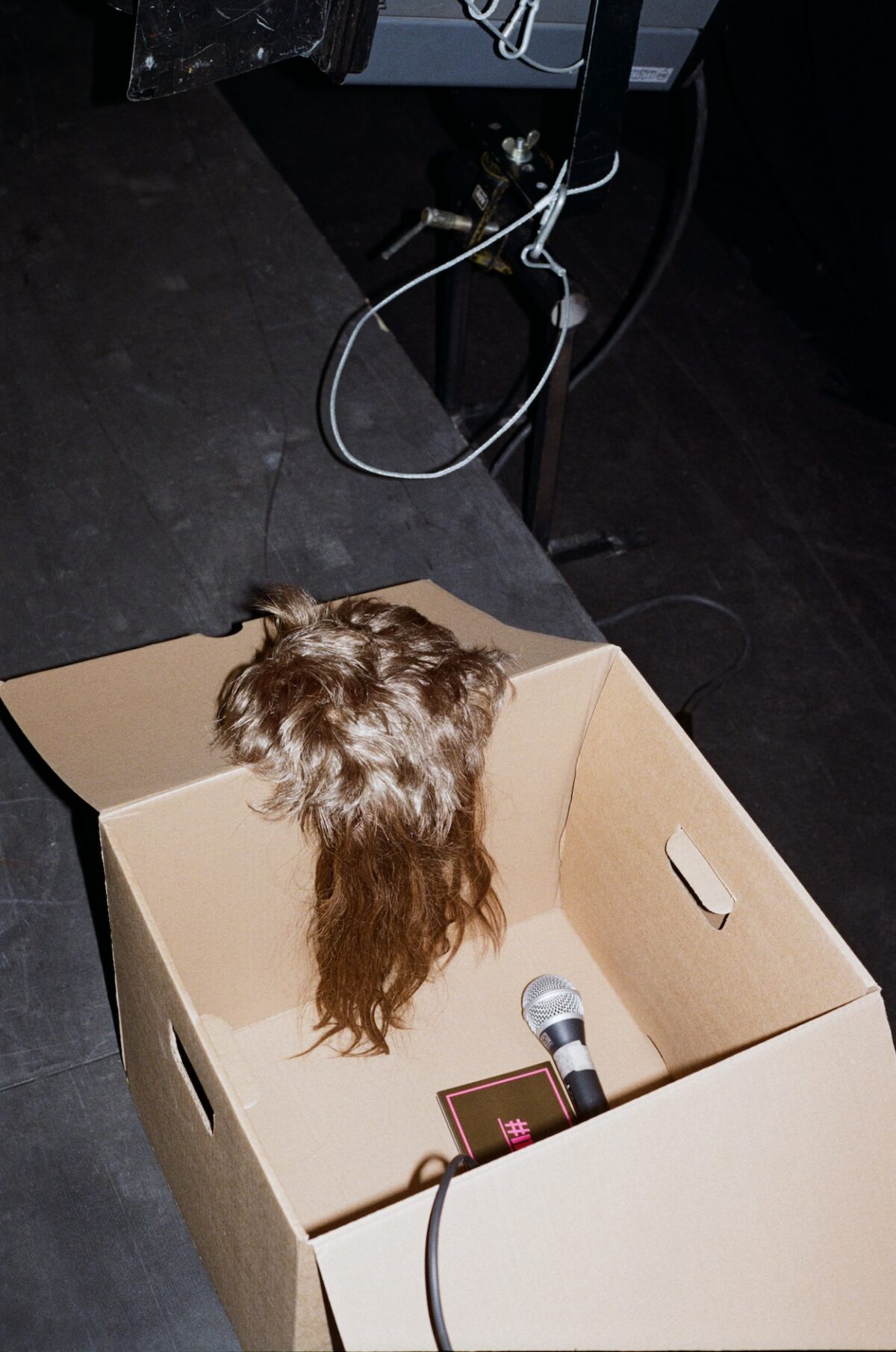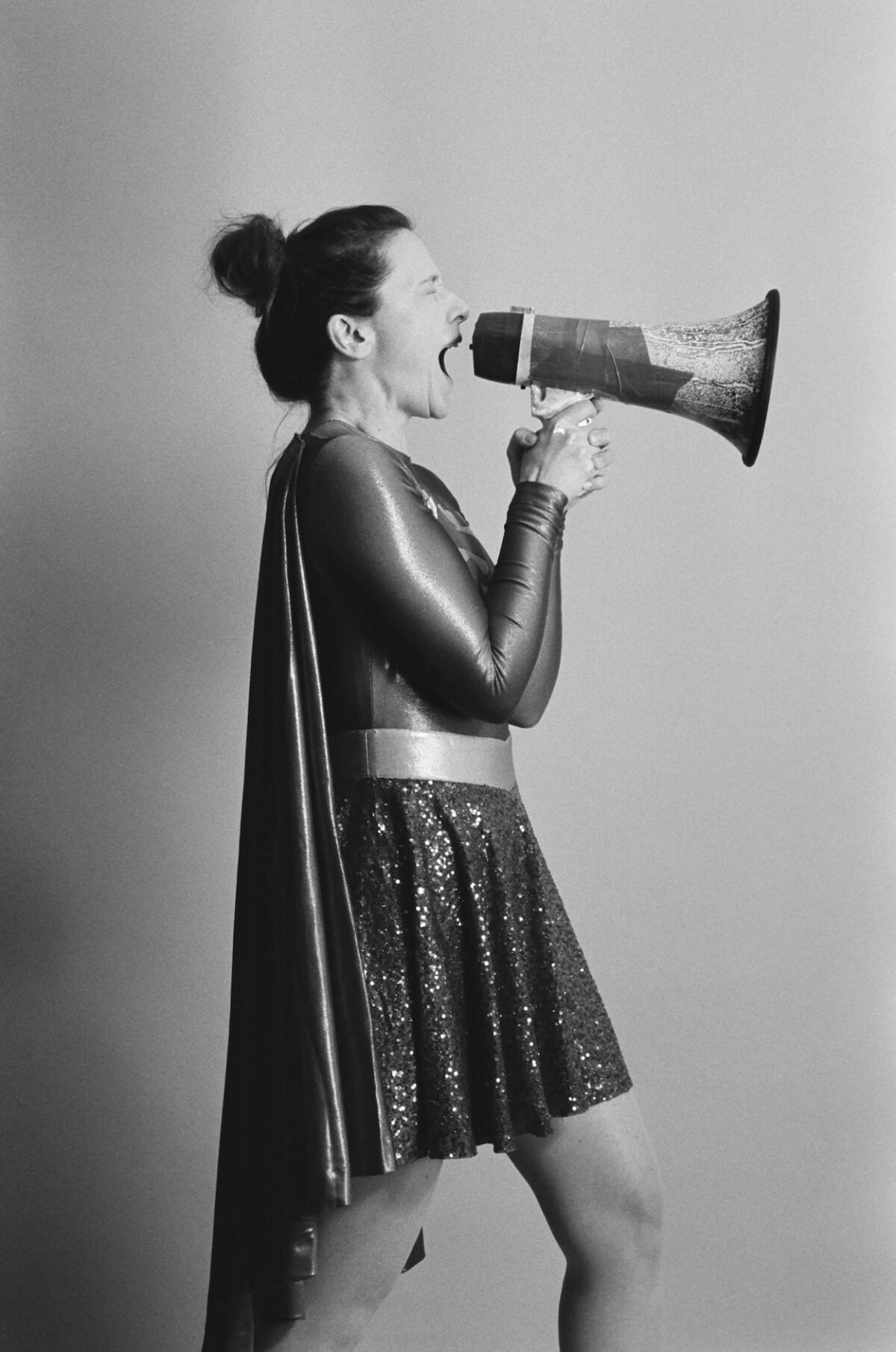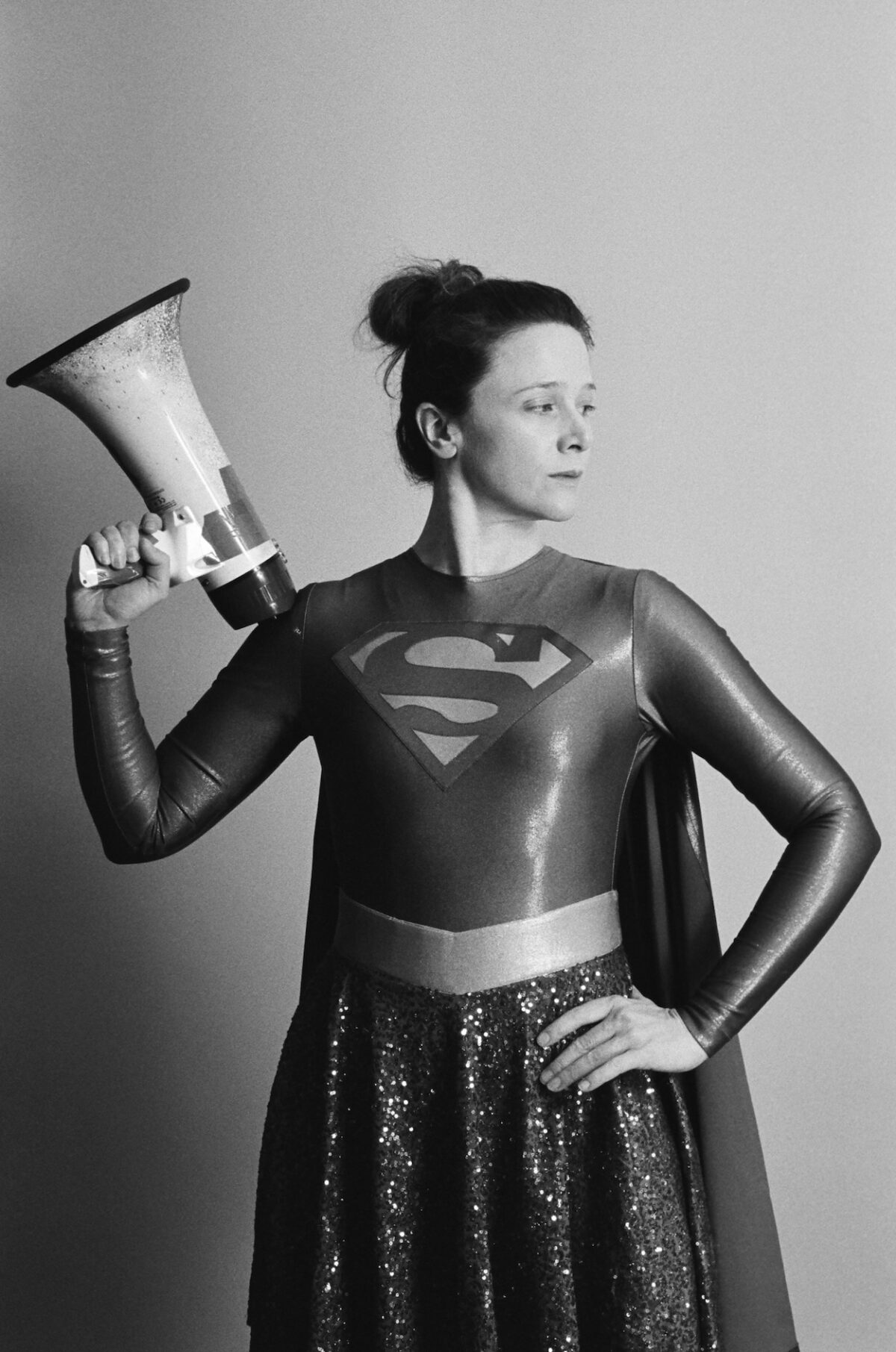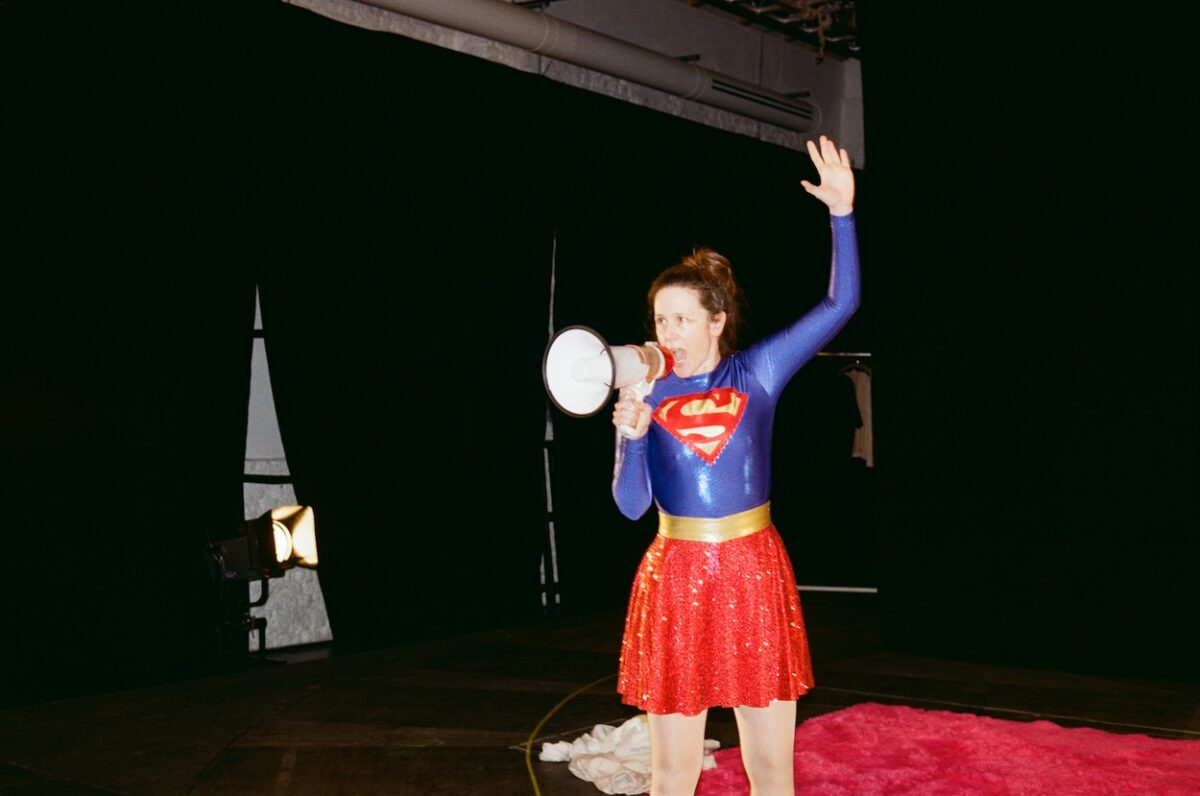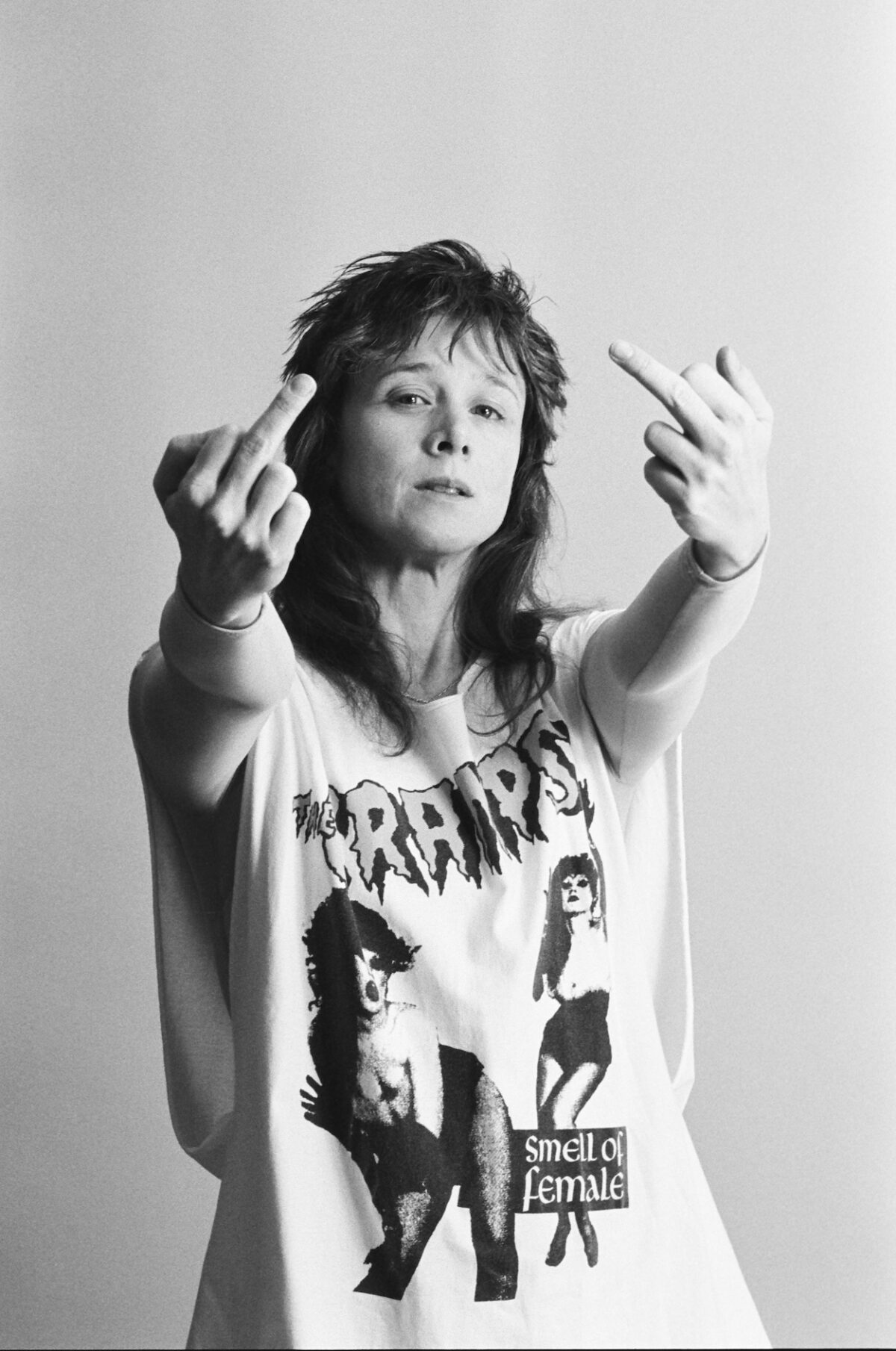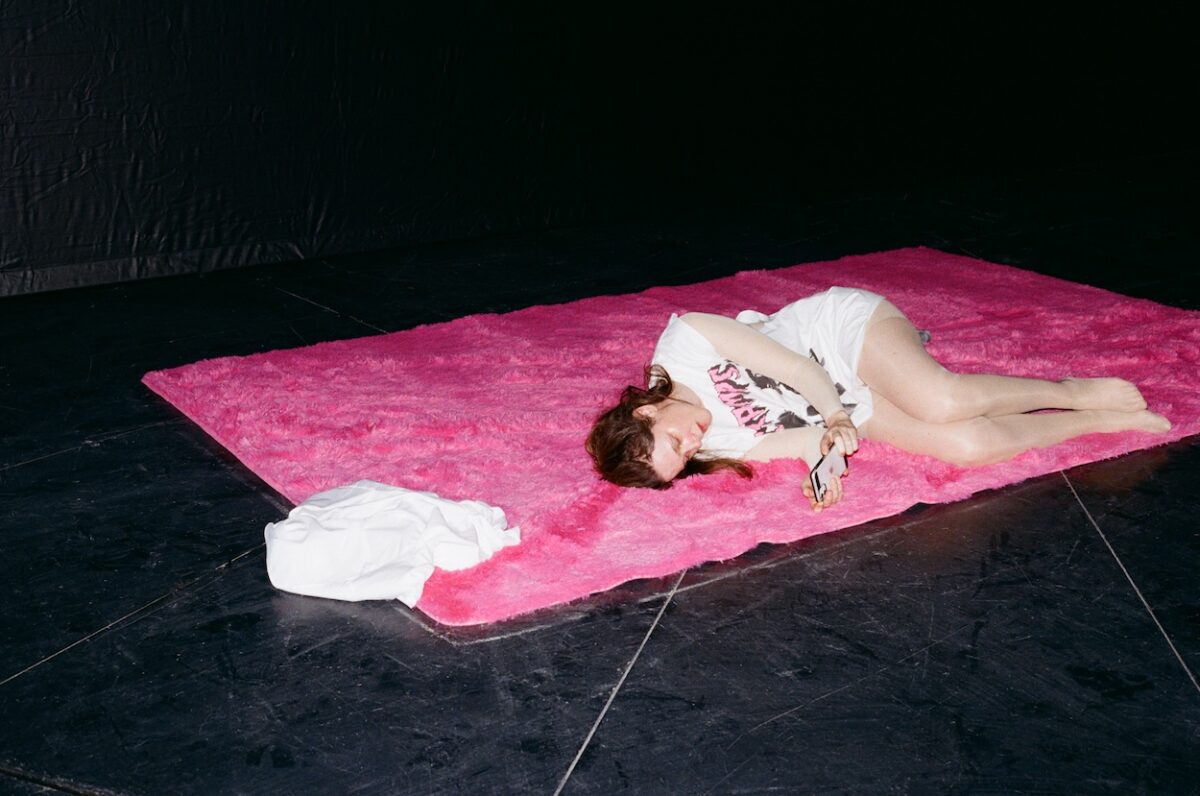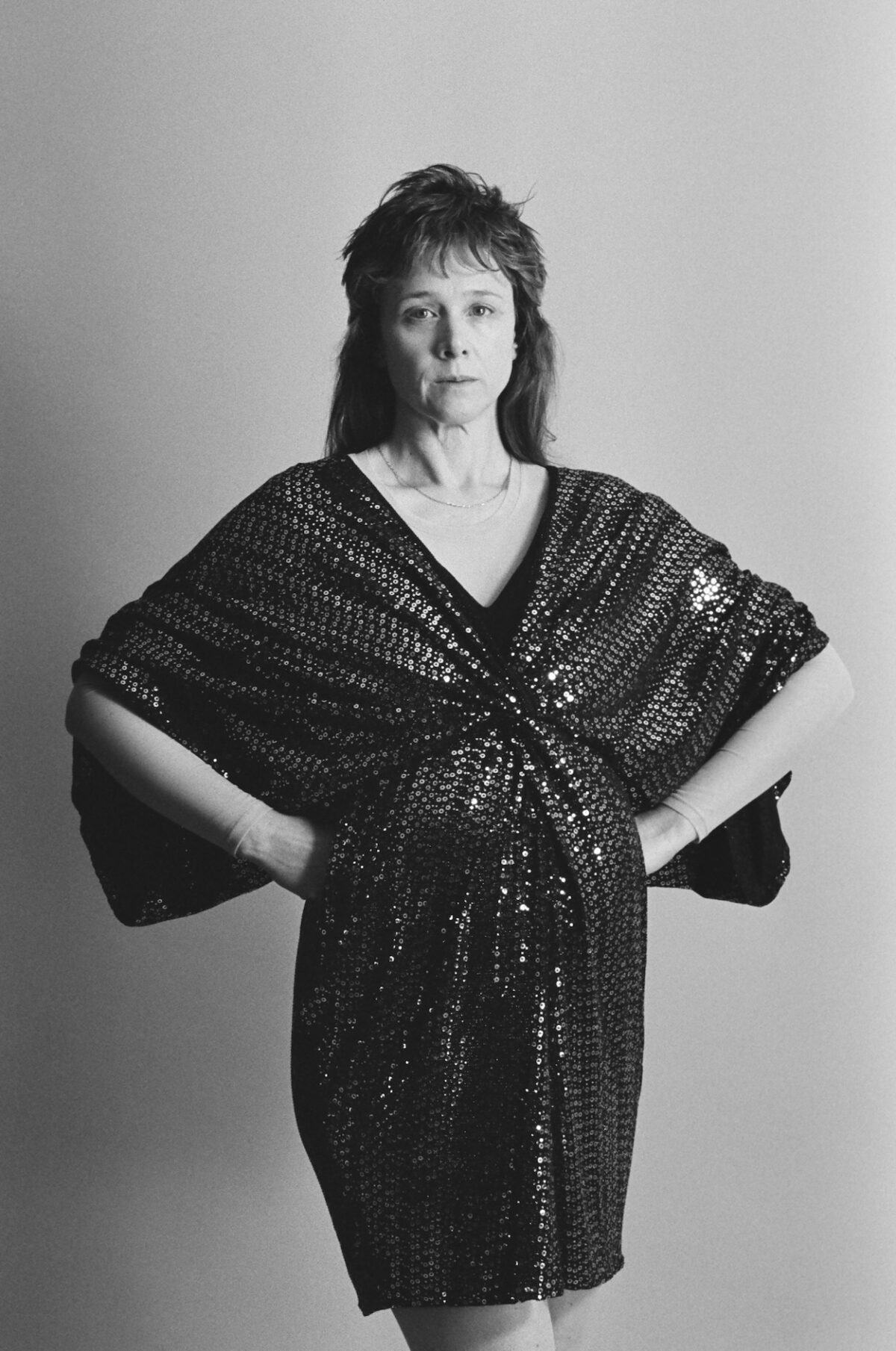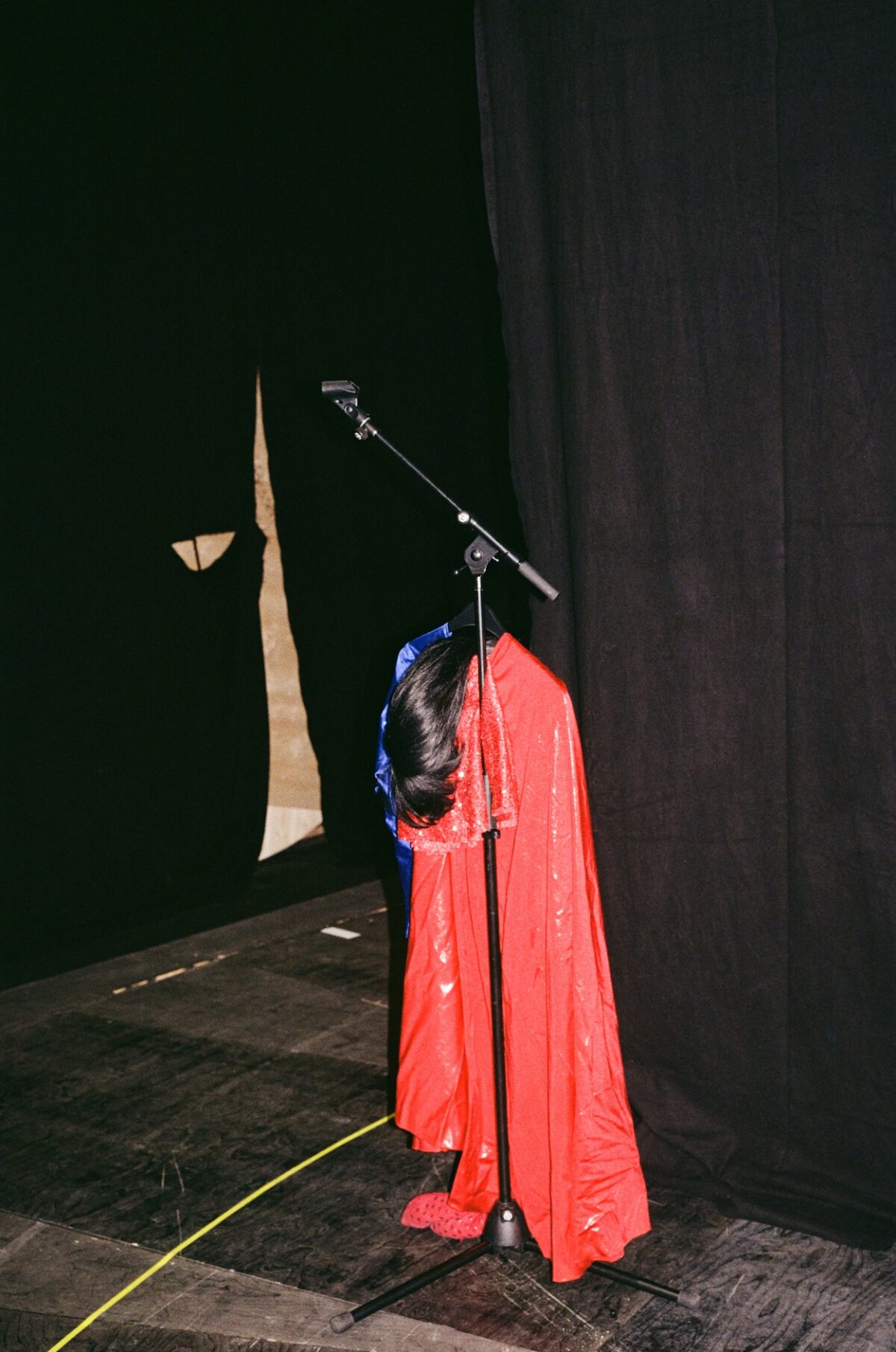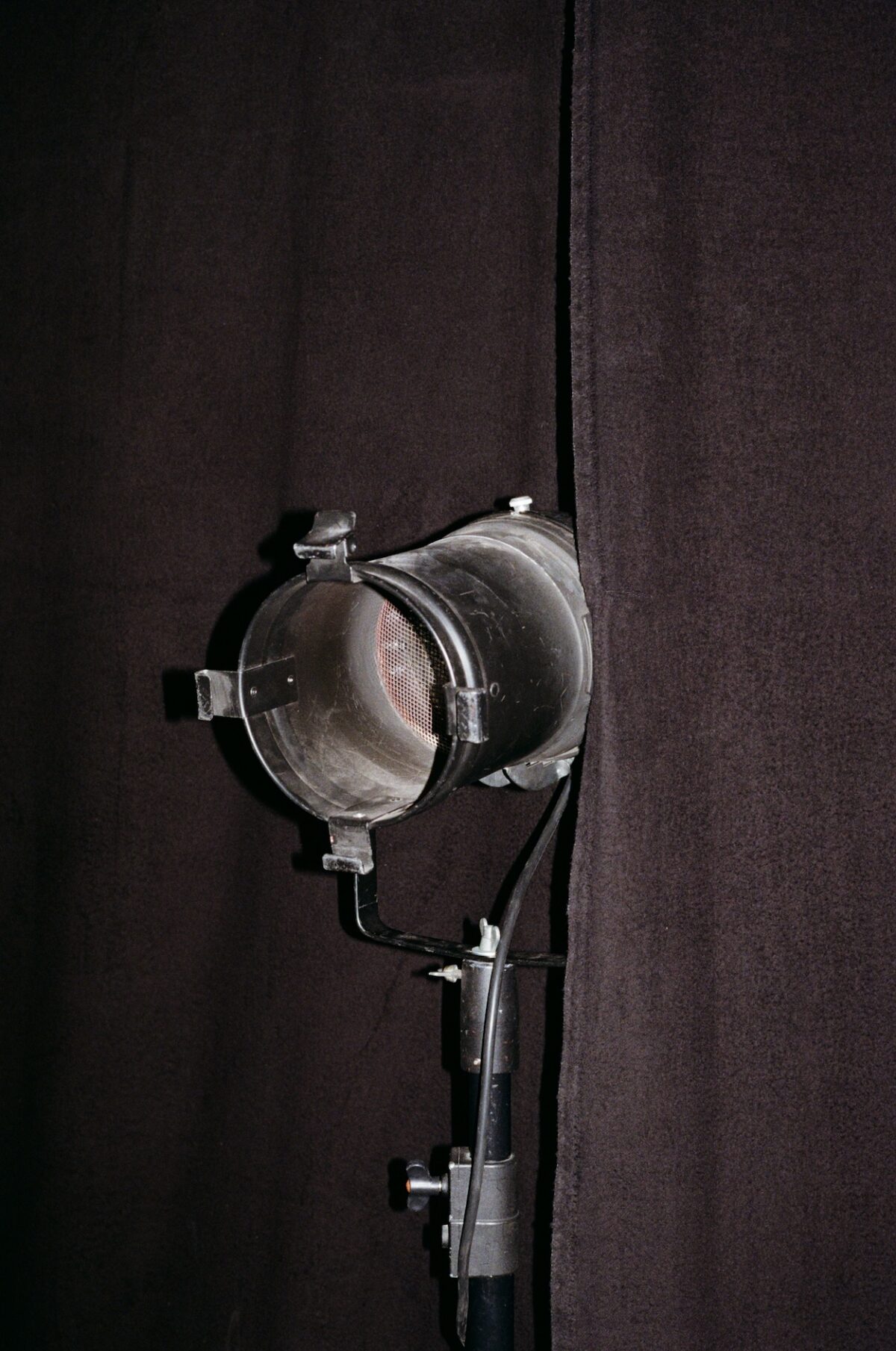INTERVIEW WITH CLAUDE DE DEMO, ACTRESS OF #MOTHERFUCKINGHOOD
#MOTHERFUCKINGHOOD
Mirjam Wählen documented the rehearsals for #Motherfuckinghood in Berlin in January and photographed Claude De Demo in her costumes after the premiere in the studio. Costume design by Julia Hansen
What is “#motherfuckinghood” all about?
And why is it so relevant right now?
#motherfuckinghood is a collage about experiences of motherhood.
Our theater evening is about the compatibility of work and motherhood, about discrimination against mothers in the labor market, about nannies and the devaluation of motherhood for certain women, about the unequal distribution of care work within families but also in society. We look at the cult of the ‘perfect mother’. Who does it serve, where does it come from and what happens to mothers who are doubly discriminated against? We looked at the injustice in the income ratio between mothers and fathers in Germany, violence during childbirth and the question of what would happen if women went on a care and reproduction strike overnight. It is about education, raising sons, shame, feelings of guilt, anger and that the upheaval will never happen without men.
According to the latest studies, the birth rate in Germany has fallen significantly over the last two years. Fertility levels are the lowest they have been since 2009. There are many reasons for this. On the one hand, the coronavirus pandemic, the global political situation and the climate crisis are having a significant impact on the birth rate, while on the other, the political and economic conditions for women and mothers are poor. Women are thinking about their lives from the back more often than before. A lack of daycare places, few all-day school options, a shortage of nursery nurses and teachers, work-life balance, professional disadvantages due to interruptions in education or employment, career setbacks, financial dependence on a partner, housing shortages, part-time work, poverty in old age, discrimination against mothers in everyday working life, pension gaps – all of these factors influence the decision and cause the birth rate to fall. Experts warn of considerable economic and social consequences.
How can we as a society help to ensure that mothers no longer have to feel ashamed when they are unhappy or feel overwhelmed, how can we find more support and solidarity for mothers?
By stopping idealizing motherhood. By recognizing structural problems and not individualizing them.
By stopping blaming the ‘overwhelmed’ mother and shaming her when she speaks openly about her feelings. By stopping judging as a society instead of listening and helping. Help is the only thing mothers need in this case. It’s actually quite simple, but in our capitalist, performance-oriented, self-optimizing society it seems to be a huge task. We get scared when the image of the perfect mother is challenged, but unfortunately not scared enough to help. ‘It takes a village’ to raise children, they say, but where is the village? Our mindset has to change.
We can probably only do this by creating new role models, by mothers stepping out of invisibility and speaking up. By expressing our anger and resentment about structural injustice instead of remaining silent and functioning. By networking, forming bonds, full of honesty. By questioning our system. By thinking socially, more collectively, more supportively. By no longer allowing ourselves to be isolated and isolated. By breaking down taboos and creating protected spaces. By demonstrating more cohesion among us women. There is no need for comparisons. By making invisible care work visible, remunerating it and thus giving it value. By realizing that the private sphere is political.
What do you hope that “#Motherfuckinghood” will achieve in the audience and what changes do you want to initiate through this play?
I get more letters and messages than ever from audience members after this performance.
Most of them thank me and write that they don’t feel so alone anymore since they saw the evening. One woman wrote about the ‘solidarity in the auditorium through the shared laughter and tears’. The evening hits a nerve. It shows what and how motherhood can really be, it doesn’t sugarcoat, it doesn’t exclude but tries to create a connection, it accuses, it is angry and sad but also very funny. Get out of the feeling of guilt! This obviously touches and affects many audience members, because the response is enormous. I actually wish that evenings like #motherfuckinghood were obsolete. That we no longer need them, that the evening is no longer relevant, that would be my goal. Well, I think we’ll be playing the evening for a very long time.
How would you describe society’s perception of motherhood and the stereotypes associated with it, and do you think these stereotypes limit or undervalue women in their role as mothers?
Unfortunately, we are still working off the classic stereotypes:
the ‘good’ mother is white, heterosexual, Christian, without disabilities, married to the children’s father, at least middle class. She is balanced, devoted, happy, caring and present, calm and altruistic. She puts family above all else. Domestic and caring work should be done out of love, without pay. She should work, otherwise she is a mother hen, but not work too much, otherwise she is a ravenous mother.
A study by the WZB shows that mothers who were on parental leave for too long were less likely to be invited to job interviews because they were not trusted to return to work, while mothers who wanted to return to work immediately after giving birth were even less likely to be invited because they were considered to be raven mothers, not team players and careerists. So it was a complete dead end.
Stereotyping shapes the self-perception of many mothers, and it hits doubly discriminated mothers who do not conform to the classic stereotype particularly hard. All these women have to work very hard to be perceived as a ‘good mother’, most of them work their whole lives unsuccessfully on this racist and classist trope.
How can we as a society reduce the social pressure that mothers face in terms of choices such as breastfeeding, taking time off work and parenting methods, while providing more support for diverse motherhood pathways?
By stopping pressurizing as a society.
By stopping judging as a society.
By stopping judging as a society.
By stopping as a society to attribute.
By recognizing as a society that we are part of a system.
By realizing as a society that we support right-wing ideas (women’s reproductive work) through ignorance.
By realizing as a society that our society is diverse and wanting to live that.
By ceasing to discriminate as a society.
By not tolerating racism as a society.
By thinking more socially as a society.
By educating ourselves as a society.
By respecting each other as a society.
…
Finally, what concrete steps could politicians, businesses and civil society take to create a fairer and more supportive environment for mothers and remove the structural barriers to their full participation in society?
Many women work ‘involuntary part-time’ from the birth of their first child. This is due to family obligations such as childcare or caring for relatives. (This year, for example, there is a shortage of around 400,000 childcare places) According to a recent study, this applies to around 65% of couples in Germany (in only 2% of working couples, the mother works full-time and the father part-time).
This means that the income gap between men and women widens as soon as a family is started in Germany. On average, a mother in Germany earns 1000,000 euros less in her lifetime than a father. According to current studies, women suffer considerable losses on the labor market after the birth of their first child, while fathers are not negatively affected by parenthood on the labor market.
In order for mothers to be able to work full-time again, there would need to be a better state infrastructure for childcare and care of the elderly. In addition, misguided incentives such as ‘marriage splitting’ have been sharply criticized by experts for years. The consequences are serious.
Mothers’ pensions are around 47% lower and, in the worst case, can lead to poverty in old age. The lower earnings also go hand in hand with a high level of dependency on the partner, which is also problematic with a divorce rate of 40%. Single mothers are particularly often affected by poverty in old age. They are often able to work less due to raising children, but still have many expenses and hardly any financial security. Many women switch to more family-friendly but also lower-paid jobs. Paid work therefore dominates the discourse. But there is no discussion of the fact that without unpaid work, paid work would not be possible. Those who do care work have less time and resources for paid work. It is unacceptable that the majority of this unpaid, invisible care work is done by women, with all the risks and dependencies that entails. We should rethink and adapt our life models. Divide paid work and care work fairly. Away from the hetero-normative nuclear family and towards a community.
It takes a village…
Companies should offer employees with children more family-friendly, flexible working hours and mobile working. Fairly distributed parental leave should be mandatory. The EU decision on paternity leave should finally be implemented in Germany.
All this has been discussed for years, the figures are on the table. As long as leading politicians in our country cynically announce in interviews that they are looking forward to parental leave because then they could finally write a book, learn beekeeping or go fishing, it will probably be a long time before anything changes for us women and mothers. Maybe they don’t want anything to change because, after all, part of society benefits from these patriarchal structures. They persist because they want to be preserved.
“There is no justice without love” bell hooks
